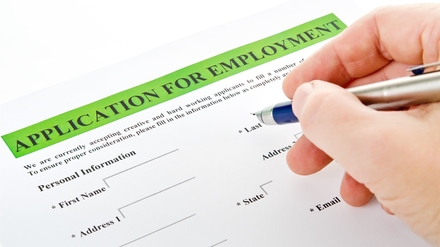What do hiring managers assign most weight on in sizing up a candidate? What section do they focus most on in sorting through resumes?
The answer to both questions is the same: work experience.
Work experience can make or break your job application. A resume is a point-form document that presents yours skills set and qualifications and the work experience portion of your resume is almost always the first recruiters look at before deciding between shortlisting you or moving on to the next candidate.
That having been said, you need to review your resume in order to recheck if you've presented yourself as the most qualified candidate for the position you seek.
What should your resume's "Work Experience" section contain?

Companies you were previously connected with
It helps to put in a URL or a link to the company page in order for the recruiter to have full access to understanding the nature of the business of the company you work for.
Employment dates/period
Unless your work record has long periods of unemployment that would need to be better explained, a traditional reverse chronological format is still the most recommendable way of presenting your work experience.
Format: Skills-based format vs chronological format
Some candidates find that their most recent work experience doesn't necessarily represent what they want their prospective employers to focus on in their resume. This is especially true when a candidate has some gaps in their employment record and more for longer periods of unemployment that need to have attention drawn attention away from. The skills-based resume format also allows you to highlight know-how that is most responsive to the job description outlined in the position you seek.
Consider an Executive Summary
This is another resume section that falls to waste because not enough thought is put into writing it. Vague summaries weaken the selling points and distinctiveness of a candidate when no specifics are given to back up the claim made:
-
"multi-tasking experience" - instead, you may provide more details on how many different departments benefitted from work you did;
-
"worked in a fast-paced environment" - instead, you may want to provide a number of customers you attended to a month on average
See more samples below of how this section prioritizes the presentation of your best skills and accomplishments over the chronology of your employment. Below are detailed outlines which may, for example, highlight specific knowledge that were clearly identified as requirements for the position you are applying for:
Example:
Medical Software Experience - Electronic medical record EMR software; Medical procedure coding software; Patient management software; Visual electro diagnostic software are ideal to highlight
*provide actual name of software, if possible
Former Job Titles/Positions
Whether you want to put more weight on the value you brought to your previous company or simply want to impress a hiring officer, stick to the truth in job titles and positions. Hiring managers routinely conduct employment background checks and finding out you've misrepresented this information in your resume sends immediate red flags to those who you need to impress.
In the same light, be sure to include info like whether it was full-time, part-time, an internship, a temporary job, project or self-employment.
Promotions, Awards & Recognitions
Records of a promotion show you've done a good job in your previous company. The same goes for awards and recognitions, as these are additional case builders that show your market value.
When including these in your resume, show clear connection of your previous outstanding results to the job requirements of the position you're applying for.
Aiming for a Promotion? Consider a specialized course for the following therapeutic specialties
Cardiology | Dermatology | Endocrinology | Family Medicine | Geriatrics | Internal Medicine | OB/GYN | Oncology | Orthopedic Surgery | Pediatrics | Transplantation Surgery | Urology | Women's Health |
Achievements vs. Responsibilities
In describing a previous job experience, you're better off focusing on achievements than producing a list of your job responsibilities. Fact is, a recruiter will more likely want to read more about what you actually got to do rather than see a list of what you were expected to deliver. Instead of just making a role of your job requirements, zero in on how well you got your work done. Did you have a contribution that improved work processes? Write that down. Better yet, quantify your contributions to the company by citing some data or statistics:
Here are some examples
-
Implemented processes that decreased average order-processing time from 10 minutes to five minutes
-
On-boarded and trained seven new employees on office administration tasks and procedures.
That should be enough to give your resume a good makeover. Go ahead and work on that resume review today.
Also Recommended:
SCMA Career Center Pocket Audio Series: Conducting A Social Media Account Audit
 844.885.1476
844.885.1476



